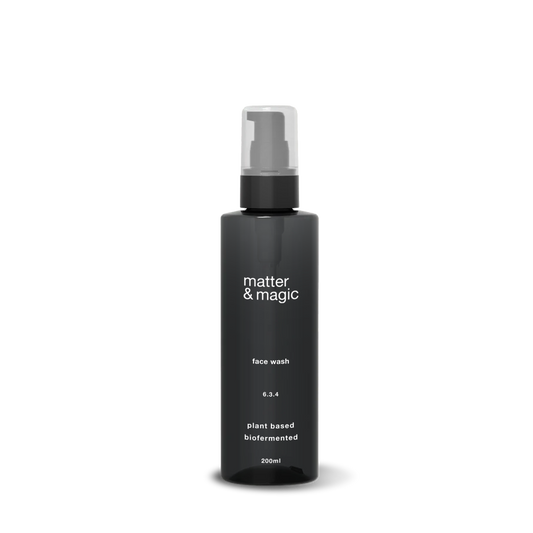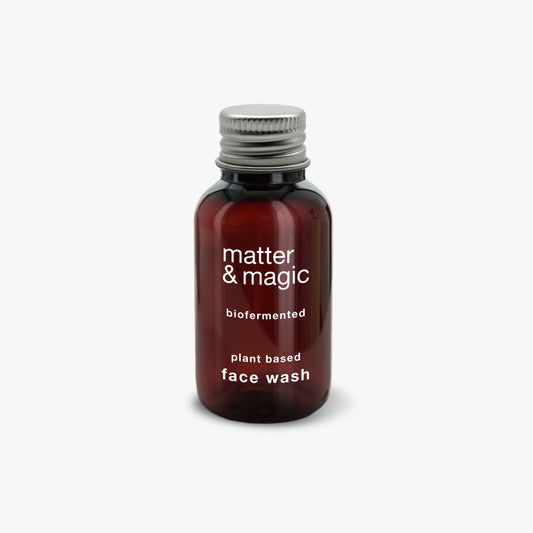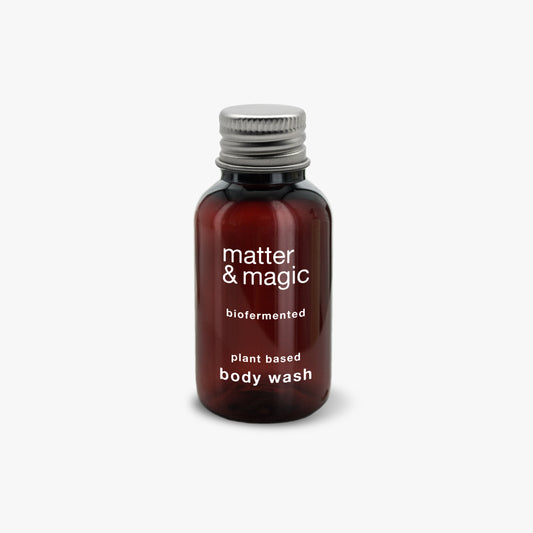
Care for your skin biome, here's why
Our skin is not just a barrier protecting us from the outside world—it’s a living ecosystem. On the surface of our skin resides a vast collection of microorganisms, known as the skin microbiome, which plays a crucial role in maintaining its health and balance. This microbiome, made up of bacteria, fungi, viruses, and other microorganisms, exists in a delicate harmony. When well-balanced, it supports healthy skin function, but when disrupted, it can lead to various skin issues. Understanding the skin microbiome can help us nurture healthier, more radiant skin.
The Role of the Skin Microbiome in Skin Health
The skin microbiome acts as an essential part of our immune defense system, offering protection against harmful bacteria and environmental toxins. It creates a symbiotic relationship with our skin, ensuring both the microorganisms and the skin thrive together. Here’s how the microbiome works to maintain skin health:
- Defense Against Harmful Microbes: A balanced skin microbiome acts as a shield against harmful pathogens. The beneficial bacteria present on our skin compete with harmful microorganisms, preventing them from colonizing and causing infections or skin irritation.
- Support for the Skin Barrier: The microbiome helps strengthen the skin’s natural barrier, which is essential for maintaining moisture levels and preventing the entry of harmful substances. When the skin barrier is healthy, it minimizes water loss, leading to hydrated, resilient skin.
- Regulation of Inflammation: The beneficial bacteria on our skin can help modulate the skin’s immune response, preventing excessive inflammation. Inflammation is often at the root of many skin conditions, such as acne, eczema, and rosacea. By keeping inflammation in check, the microbiome helps prevent flare-ups and irritation.
- pH Balance Maintenance: The skin microbiome helps maintain the skin’s optimal pH level, which is slightly acidic. This acidic environment discourages the growth of harmful bacteria and supports the growth of healthy microbes, ensuring a balanced and protected skin surface.
- Production of Antimicrobial Peptides: Some of the microorganisms in the skin microbiome produce antimicrobial peptides, natural substances that fight off pathogenic bacteria and promote wound healing. These peptides also help regulate the immune system and reduce the risk of infections.
- Improved Skin Hydration: A healthy microbiome contributes to better skin hydration by maintaining the lipid barrier. When the microbiome is in balance, the skin retains moisture more effectively, reducing dryness and improving the skin’s overall appearance and texture.
Specific Skin Benefits of a Balanced Microbiome
Maintaining a healthy skin microbiome has a range of benefits, each contributing to glowing, healthy skin. These benefits include:
- Reduced acne breakouts by limiting the overgrowth of harmful bacteria.
- Enhanced moisture retention for soft, supple skin.
- Improved skin barrier function to prevent irritation and sensitivity.
- Fewer instances of eczema, psoriasis, and rosacea flare-ups by reducing inflammation.
- Faster healing of minor wounds and cuts thanks to antimicrobial peptides.
- Balanced oil production leading to fewer issues with oily or dry skin.
- Protection against harmful environmental factors like pollution and UV radiation.
How to Support Your Skin Microbiome
Supporting your skin microbiome starts with using gentle skincare products that respect its delicate balance. Harsh cleansers, over-exfoliation, and the use of antibacterial products can strip away beneficial bacteria, disrupting the microbiome and leading to skin problems. Look for skincare products with natural ingredients, probiotics, and prebiotics to nourish your skin’s microbiome.
Incorporating products that contain microbiome-friendly ingredients is an effective way to care for your skin. For example, Matter & Magic’s natural skincare line offers gentle yet effective formulations designed to support the microbiome, leaving your skin hydrated, balanced, and protected.
In conclusion, nurturing the skin microbiome is key to achieving and maintaining healthy skin. By understanding its role and taking steps to protect it, you can enjoy a radiant, resilient complexion that’s well-equipped to defend against common skin issues.













